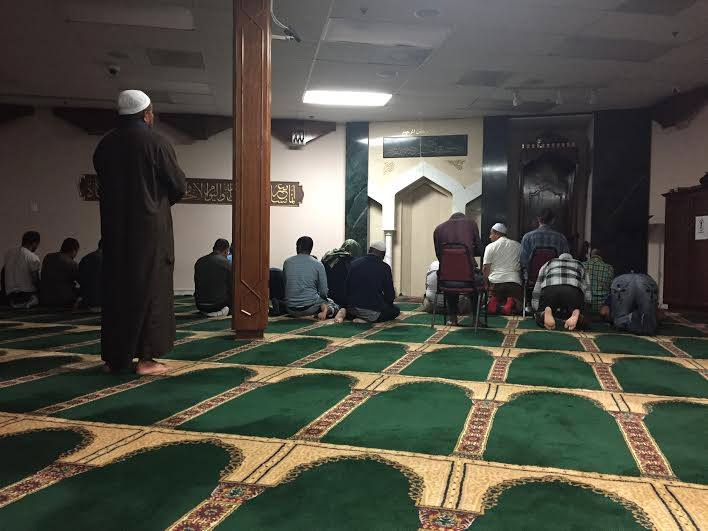interviews
Patrick Ryan on Families Living in the Shadow of NASA and ‘The Dream Life of Astronauts’
by Jonathan Durbin

Patrick Ryan’s latest, The Dream Life of Astronauts (The Dial Press, 2016), is an exquisitely crafted collection of short stories set in Merritt Island, Florida — better known as the home of Cape Canaveral. The space program forms the backdrop to each of the book’s nine tales, which span the period between the 1969 Apollo 11 launch to present day. But the author’s intimate, character-driven narratives draw their power more from family dynamics than they do launch pads or rocket boosters (even if both of those make appearances). In “Earth, Mostly,” a single woman learns to appreciate her precocious granddaughter following an awful date with a twisted driver’s ed instructor; a young boy develops a relationship with his hippie uncle while alcoholism wipes out his parents’ marriage in “The Way She Handles”; and the title story sees a gay teen thrilled to befriend a former astronaut, only later to realize that he’s become an underage sex-aid in the spaceman’s flailing marriage. Throughout the book, children and adults come into conflict with frequently moving — and darkly comedic — results.
Currently a contributing editor at One Story, the editor of One Teen Story (and a former editor at Granta), Ryan writes with authority here in a staggering range of narrative voices: a mobster in the witness protection program enforcing the pool rules in his housing complex, say, or a nonagenarian who harangues her nursing-home roommate for stashing “pornos.” It’s clear Ryan takes delight in such Floridian weirdness. The author grew up in the NASA part of the Sunshine State and renders his characters with a local’s precision and wit. I caught up with him over coffee in Midtown Manhattan to discuss the importance of creating sympathetic bad guys, why good fiction is always about what’s going wrong, and the funny, awkward and revealing nature of good writing about bad sex.
Jonathan Durbin: The NASA backdrop in this book lends it such an Americanness — you can almost taste the Tang.
Patrick Ryan: I’ll tell you something scary: they still make Tang. I watched the ’69 moon launch from my driveway, and that was exciting, But when I was growing up, everyone’s parents worked at NASA, so no one thought much about it. Our house was 20 miles away from the launch pad. The rockets would go off and they’d rattle the doorknocker. Pictures would move. You’d feel the ground rumble. And if you wanted to, you could go outside and watch the big ball of flame climb into the sky.
Durbin: Your parents worked there?
Ryan: Yeah. My dad had a job checking out camera equipment to the NASA photographers and my mom was a secretary at Technicolor. Every once in a while, if you were the family of a NASA employee, you would get a pass to see the launch closer up. But it wasn’t the VIP area; it was a field. I remember one time we were sitting out there late at night waiting for an Apollo launch that was scrubbed. It was the first time I’d seen a preying mantis. They were walking on us while we sat there, waiting.
Durbin: Did you want to be an astronaut as a kid?

Ryan: I did. Anything that had an astronaut it, I loved. I was crazy about The Six Million Dollar Man. Space: 1999. Marooned. Like any good kid back then, I was crazy about all the Planet of the Apes movies. I most definitely wanted to be an astronaut if it meant having my own movie or TV series.
Durbin: Have you always been drawn to writing about Merritt Island?
Ryan: I tried not to, at first. I was always bent out of shape about being from such a boring place. But when I went to college and started putting stories up for workshop, people were always interested in the locale. I paid attention to that.
Durbin: This was when you were at grad school in Ohio?
Ryan: Yeah, at Bowling Green State. There’s one story in the book, “The Fall Guy,” that I wrote a very early draft of when I was in grad school. And it became one of those stories that just wouldn’t go away. I kept revisiting it and fiddling with it for years.
Durbin: The space program mainly forms the backdrop for a lot of these stories, sometimes in devastating ways. “Go Fever” is set just following the Challenger disaster. Until I read that, I hadn’t considered how people who worked on Challenger must have felt.
Ryan: I was spit-balling when I first wrote that — I never talked to anybody. But around the time Catapult published that story, on the thirtieth anniversary of the launch, I heard this NPR profile about an engineer who had worked on Challenger and had suffered horrible guilt. He’d gone to work saying, don’t launch, the O-rings are going to break, it’s too cold. But it was that go-fever thing: the higher-ups wanted to stay on schedule. The profile on this guy sparked hundreds of letters — people wrote him, telling him that he’d done his best and had certainly done nothing wrong, so he finally had some piece of mind. And he died two months later.
Durbin: That’s sweet and terrible. It’s obvious, but there’s so much narrative potential in the space program.
Ryan: Do you know about William Safire’s speeches for the ’69 moon launch? He wrote two for Nixon. One of them was the one he gave — hooray, these guys are heroes. The other one was written for the opposite scenario: what if they got up there and if they couldn’t leave? NASA was pretty sure they’d be able to land them on the moon, but not so sure about getting them off. If they got stuck up there, the plan was to say goodbye, let them talk to their families, and then shut down communication.
Durbin: My god.
Ryan: You can read the speech Nixon would have given. It’s basically saying to America: and now we thank these guys for their heroism and bid them farewell. Think about how weird that would have been. Everyone can see the moon! And the astronauts would have been up there, alive, until their air ran out.
Durbin: Nixon comes up in the first story in the collection, “The Way She Handles,” and throughout The Dream Life of Astronauts you address a kind of waning optimism — the enthusiasm of the ’60s being confronted by the realities of the ’70s. Your younger characters are always being disappointed, usually by the adults in their lives.
Ryan: The adults are all exhausted and the kids are all optimistic and sugared up. That probably goes back to my relationship with my dad. He wasn’t the most chipper guy on the block. I would say to him, I want to be a doctor. When I was maybe six years old. I want to be a doctor, or a pilot. Or an astronaut! And my dad would shake his head and say, “It takes an awful lot of training to do that.” That would be his whole response. You know — set your sights a little lower. [laughs]
Durbin: That sense of tamping down comes across in many of your pieces. Still, there’s an obvious sympathy for the adults. They’re not bad people. They’re just worn out.

Ryan: I want to write about characters who are earnest in what they’re trying to accomplish. Villains don’t see themselves as villains — that’s what interests me. No one wakes up and says, what kind of monster am I going to be today? Like the scoutmaster in “The Fall Guy” who tells the little boy, Julian, that he looks like “a goddamn girl.” The scoutmaster is dealing with his sons’ having bullied that kid, which is humiliating for him. But he’s also trying to give Julian what he thinks is a sound piece of advice, which is that Julian is bringing it on himself. Like, if you would just cut your fucking hair, people will stop bullying you. It’s awful advice, but he means well.
Durbin: [Laughs] I’m reminded of the grandmother character in “Earth, Mostly,” too, who offloads her granddaughter onto her friend so she can get to that date with her driving instructor — which goes so disastrously.
Ryan: I’d been working on that story for months, and I knew that date wasn’t going to go well, so I started to feel kind of like an asshole, thinking I was getting off in a way, enjoying knocking this character around. Then I started thinking, well, I’m the one pulling these strings. She wants to get laid, I’m sure, but she also just wants a boyfriend, and then this happens? I had to work through that, where I wasn’t feeling like a puppet master who was enjoying one of the worst days of this woman’s life. That was my plan, though. From the get-go, I wanted to give this character one of the worst days of her life.
Durbin: The scene she and the driving instructor share in the motel room is so awkward. It’s also hilarious.
Ryan: Good fiction is always about what’s going wrong, isn’t it? I have no interest in writing about actual sex. Well, I have no interest in writing about good sex. But it’s fun to write about people edging into that situation, particularly for the first time with someone, because self-consciousness starts to take over.
Good fiction is always about what’s going wrong.
My only interest is in writing close to a character. Even with Clark Evans, the astronaut from “The Dream Life of Astronauts,” who really is kind of a dick — I feel sorry for him. That helped me write the sex scene because he’s obviously got issues. He’s seducing this kid, Frankie, because he and his wife have come to this arrangement. The fact that Clark sits off to the side during that scene, that he doesn’t even have an erection, that he tells Frankie and his wife that he’s not even in the room — there’s something sad about that.
Durbin: Another opportunity for empathy.
Ryan: Right. Many people feel powerless in their lives, and it makes them act out in unfortunate ways. One of the unfortunate things with Derek, the talent scout from “Miss America,” for instance, is that he’s a grownup and he doesn’t realize the power he holds over the two teenage girls in that story. Not just that he could lure them into doing something unpleasant, but that they’re looking to him for something. It’s like the narrator in “The Way She Handles,” too, and his uncle Robbie.
It’s unavoidable that kids turn into adults who are going to disappoint and frighten children.
Robbie gets kicked out of the house. He has to leave. But when the narrator speaks at the end and says that he was mad at his uncle for that for quite a while — that felt sad and true to me. It’s unavoidable that kids turn into adults who are going to disappoint and frighten children.
Durbin: And it seems like age is just a number. In “You Need Not Be Present to Win,” the main character is seventy, but even so, he’s still a kid in relation to his ninety-year-old mother — and yeah, she’s disappointing him.
Ryan: The impetus for that one was my dad’s relationship with his mom. His mother was a wicked person with a long history of being awful. She died on the phone in the middle of an argument. When my dad was in his sixties, he had one last visit with her, and afterward he said, “I’m done with her.” I said, “What do you mean?” He said, “The next time I see her, she’s going to be in her coffin.” Ouch, right? And that was exactly what happened, and where the idea for the story came from. It’s a dark little note to end the book on.
Durbin: But it’s also optimistic, in a way. Many of your younger characters are trapped, but here the son takes action to better his circumstances. I read it as a positive outcome. It opens things up. Also, that story has a killer title.
Ryan: Ann Patchett gave me that title. I was working on something that didn’t make it into the collection, trying to write about these parents who were scam artists. She said, “Oh, you could call it that thing that’s printed on the back of raffle tickets — you need not be present to win.” I guess the ending to that story is kind of optimistic. I wanted “Miss America” to have an optimistic ending, too, because people are at least trying to rise to the occasion.
Durbin: You do that in a couple of places. In a bizarre way, “Earth, Mostly” also ends on a positive note.
Ryan: I thought that one was pretty bleak!
Durbin: It is, but the grandmother and Becca come together in the end.
Ryan: They’re bonding, yeah. They’re bonding over their bad attitudes. “My only babe. My sweet lover!” That line never changed. That was in every single draft.
Durbin: Did you write to that line?
Ryan: No. I only knew the grandmother’s date wouldn’t go well, and I knew that I wanted an ending where she was breaking down. She’s had this awful day and at the end she’s grabbing her granddaughter for comfort. I wanted her to say something that was a little off. I crossed my fingers because I feared my editor would ask, why the hell is she saying that? He didn’t. It’s weird but I knew it was right. Becca says, “Everyone’s awful!” and her grandmother has a moment of revelation that almost borders on panic.
Durbin: You take on many different perspectives in this collection, with so much authority. Are any of these narratives autobiographical?
Ryan: None of this is based on my actual experience. Well, almost none of it. A little of that boy-scout stuff in “The Fall Guy” is based on what I went through. I had a scoutmaster who had two sons; in real life only one of them was mean. The incident on Julian’s birthday in the story, that happened. Word for word. They lived right down the street from me. They would turn into my driveway and honk and I would get in and go to the scout meetings with them. I was around eight years old, and when they showed up that evening, I remember running out of the house, all happy, and the scoutmaster asking why I wasn’t in uniform. I said, “It’s my birthday!” and he said, “What’s that got to do with anything?” and then told me I’d lost my voting privileges and put the car in reverse. [Laughs] I was so afraid of him.
Durbin: Was there anything in writing these that surprised you?
Ryan: The end of “The Way She Handles,” that wasn’t planned. I decided to pull back in order to look at the narrator’s life from a later vantage, and it was thrilling. It was like running on a decline — you realize that the decline is giving you a momentum, and that you’re not entirely in control anymore. I’d never had that experience before. Normally, I’m so controlling. I write so slowly. I rewrite constantly while I write. That’s not a brag — it’s a problem. I write ten words, I take five back. Nearly every writer I know says the point of a first draft is to knock it out, but I can’t. I write a paragraph, and I can’t write the second paragraph until I feel like the first one is in okay shape. It’s not a great way to work. If I have a rare, three-hour session, say, and I write three pages? That’s Olympic. So this was a rare instance where the whole last part of the story came to me in a rush. I looked back on it and thought, how did I get so lucky?
The other thing was that when I started that story, it was about a boy and his uncle. I knew that the tension in the parents’ marriage was going to be displaced onto the uncle, and that he was going to be the scapegoat. But by the time I got to the end, I realized that the story was actually about the parents and the impact of their drinking — and that, really, the story was about the mother. If you write a moment with a character, especially if it takes you by surprise, and it feels true, you’ve got them. When the uncle shows up, rolling out of this pot van, and the mother comes running out, squealing as if the house were on fire — as soon as I wrote that, I was like, now I’ve got her. I’m good to go. It’s all about what feels true for the character.
Durbin: You’ve been revising many of these stories for years — no mean feat. How do you keep yourself interested in a story during that process?
Ryan: Revising a story that you don’t believe in is like making out with somebody you’re not attracted to. [Laughs] After I showed my editor a few of the newer stories, I told him about some of the older ones that were also set on Merritt Island. He said he wanted to see them. I said something like, “I don’t want to show them to you because I wrote that one in grad school, and I published that one in a really small journal a hundred years ago, and that one I could never publish anywhere, and I’m not really happy with any of them now.” But I agreed to look at them and see if there was anything I wanted to revisit. There was no rush. It wasn’t like scrambling around. I just slowly started to investigate the possibility of rewriting a few of those stories. Rebuilding them from the ground up. The experience of doing that — and then getting edits back and rethinking and retooling — was just as thorough and messy and great as diving into the brand new material I was working on.
Durbin: How does being an editor inform your writing?
Ryan: I think it makes me a better writer, which makes me a better editor — which, in turn, makes me a better writer. When I worked at Granta, John Freeman and Ellah Allfrey were very big on authorial intent, an idea that had been in my head but that I’d never heard anyone articulate before. It means that if you’re an editor, you try to get a handle on what the author is going for and help the author get there. As opposed to working against what an author is trying to do. I think about authorial intent a lot now, and that cycles back around to when I’m sitting down to work on my own stuff. I’ll think, I’m messing with the author’s intention here, and I am the author. [Laughs] But that’s what interests me.
Durbin: Do you feel like you’re still figuring out what makes a short story work?
Ryan: Yeah. Every time I sit down to write one. The thing is, I never want to be done learning how to do this. It’s not like riding a bike. Why in the world would I want to do it if I weren’t still figuring out how to do it? That’s half the fun.
About the Interviewer
Jonathan Durbin’s fiction has appeared in One Story, Electric Literature’s Recommended Reading, Catapult, New England Review and elsewhere. He is currently working on a novel and a collection of short stories.









